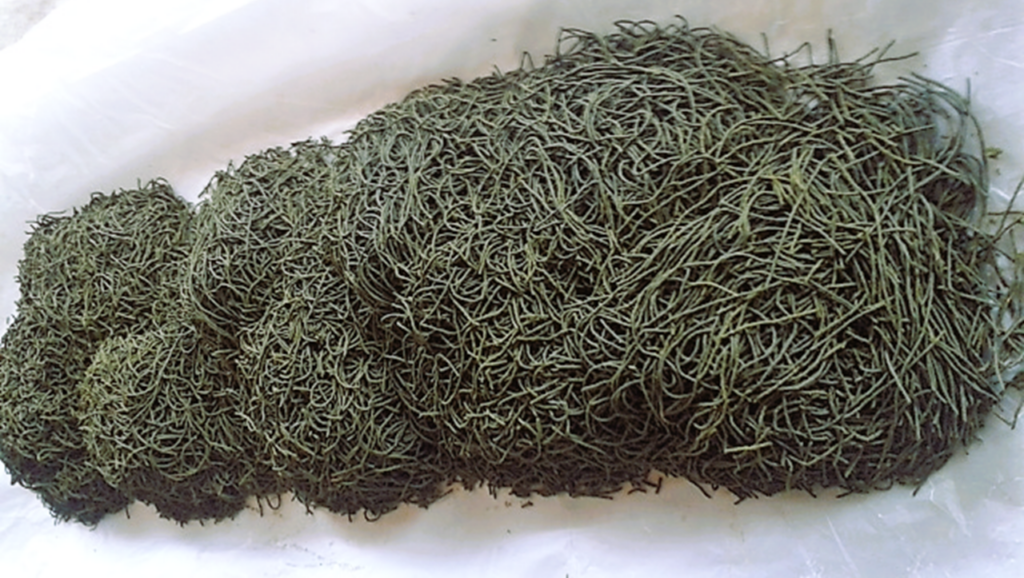
Tea News for the week ending March 10
World Tea Conference + Expo Announces “Best of” Award Finalists
| Pakistan is Willing to Barter Rice for Kenyan Tea
| Teaware Manufacturers Adopt Consumer to Manufacturer (C2M) Business Model Pioneered by Fast-Fashion
| Study Suggests an EGCG-based Therapy for Treating Alzheimer’s
| PLUS Entrepreneurs Three-Minute Meditation with Tea
Hear the Headlines
Listen to Episode 107
Forty-Four Finalists Named, Online Balloting for “Best of Awards” Winners Underway
By Dan Bolton
Finalists in eight categories in the annual World Tea Conference + Expo “Best of Awards” were named last week. Winners will be announced at the event on March 27-29 at the Las Vegas Convention Center. Event organizers and a panel of judges named the 44 individuals, tea companies, and associations vying for recognition.
The winners are determined by an online ballot, which is now underway.
Tim McLucas, vice president of Questex Bar & Restaurant Group, said, “We are proud to present the industry with a channel to honor the businesses and individuals who have made a meaningful impact over the past year.”
Categories include Most Innovative Tea App, Best Tea-Inspired Chef, Best Boba Tea Company, and Most Creative Marketing Promotion.
The ballots will also determine the favorite expo speakers, tea YouTubers, the most Sustainably Driven Company, and the most Impactful Global Tea Body.
In addition, ten finalists were named in the Tea Tycoons competition. Three entrepreneurs will individually pitch their products to a panel of experts before a live audience. Categories include tea, innovations in tea, and a sustainable business category where founders explain how they are meeting the needs of the present without compromising future generations.
BIZ INSIGHT – Registration is now open at http://www.worldteaexpo.com. The event is co-located with the Bar & Restaurant Expo. I strongly encourage tea professionals at every level of experience to attend. It’s a great opportunity to learn, see new products, validate trends, and network with professionals worldwide. This will be my 15th year reporting on the show, every one of which was memorable.
See: Complete List of Best of Award Finalists
See you in Vegas at the World Tea Conference + Expo on March 27.
REGISTER TO ATTEND WORLD TEA CONFERENCE + EXPO

Teaware Manufacturers Adopt C2M
Consumer-to-Manufacturer Model Pioneered by Fast-Fashion
By Dan Bolton
A recent online search for tea utensils returned large selections offered by Temu and Shein, a pair of non-traditional Chinese retailers with unbeatable prices. Instead of Amazon, I ordered several items that arrived within ten days.
The experience suggests why teaware suppliers should consider the C2M (consumer-to-manufacturer) business model.
Taylor Smith, chief technology officer at Honeywell Productivity Solutions, described in a LinkedIn post the evolution of the C2M (consumer-to-manufacturer) business model from fashion to a much wider range of retail categories.
Feedback is nothing new, he explains. Retailers and manufacturers regularly receive requests for specific and customized products, but C2M leverages technology to quantify community-driven and real-time product demand. Critically, manufacturers learn of orders in real time, are geared to producing small batches and only produce an item when ordered.
C2M challenges the traditional role in which brands dictate demand through switching up designs, expanding product ranges, and flavor offerings. Instead, Smith explains that the community of like-minded consumers seeking to personalize their selections dictates what brands should deliver.
Shein, valued at $100 billion, is the world’s third most highly valued startup. The company operates in 150 countries and is adding 6,000 new products per day.
Shein uses a test-and-repeat model, which first produces small quantities of new designs for its online store and updates production orders based on real-time demand, writes Coresight Founder Deborah Weinswig. The company’s “on-demand manufacturing technology connects suppliers to our agile supply chain, reducing inventory waste and enabling us to deliver various affordable products to customers worldwide,” writes Shein.
Unlike Shein, which holds inventory, Temu employs 10,000 workers to manage a global network of 11 million suppliers in 150 countries. The Temu APP has been downloaded 24 million times with 11 million active users monthly. Sales reached $200 million in January. The company launched in Canada in February.
Shein initially shipped directly from China via air freight but in November 2022, the company opened a 170,000-square-foot office and distribution facility in Toronto to cut the shipping times and decrease the number of packages in the international shipping stream.
Weinswig writes that the C2M e-commerce business model deployed by Temu has “soared in popularity over the past several years.”
Gennaro Cuofano, the founder of FourWeekMBA, explains that “C2M creates a direct link between two extremes: the end customer that buys a product and the manufacturer that makes it. With C2M, they’re dealing directly with the customer.”
The porcelain cups that I ordered were available in eight “virtual” colors. Only after I selected “powder blue” did the supplier know what to make.
BIZ INSIGHT – Temu and Shein as catalysts that will influence teaware trends. Selections were extensive (138 tea strainers and 15 tea scoops). The user interfaces were intuitive (filters include items that are trending, sort by style, material, or occasion. Transactions were frictionless with flexible payment terms. The free shipping threshold was $35, and returns are free. Grand View Research estimates the global teaware market was worth $4.1 billion in 2020 and is expected to grow at a compound annual growth rate (CAGR) of 6.1% from 2021 to 2028. Tea retailers depend on teaware sales to make ends meet. Amazon and eBay are formidable competitors. Retailers are wise to monitor selections as they reflect consumer preferences in real time.

A New Study Suggests EGCG-based Therapy for Treating Alzheimer’s
Researchers funded by Britain’s National Institute on Aging (NIA) found that a molecule in green tea dismantles tangles of the protein tau, a hallmark of Alzheimer’s disease.
Results published in the peer-reviewed journal Nature Communications identified several molecules, including epigallocatechin gallate (EGCG), that break down the fibrous tangles that spread between brain cells, leading to cell death, according to the NIA publication Research Highlights.
Brain tissue donated by deceased Alzheimer’s patients was treated with EGCG and flash-frozen in a process known as cryogenic electron microscopy at the University of California, Los Angeles, revealing the process.
According to researchers, the EGCG binds to clefts, or openings, along each layer of the harmful fibers, destabilizing the layers and slowly prying the fibers apart. EGCG is not effective on its own because it cannot easily penetrate the human brain. The molecule also binds with many proteins, weakening its effect. But experiments indicated that a mix of EGCG-related molecules also prevented the untangled tau from spreading and forming new tangles.
Researchers caution that more work is needed, but the findings suggest that a mix of molecules that replicate the effects of EGCG can be designed to penetrate the brain and prevent cell death in Alzheimer’s patients.
FEATURES

Entrepreneurs Three-Minute Meditation with Tea
By Jessica Natale Woollard
You’ll want to pour a cup of tea for this special live meditation on the Tea Biz podcast. In my porcelain cup is a white vanilla coconut tea from the Banff Tea Company in Alberta, Canada. It’s one of my go-to blends and scents the air with a lovely fragrance to complement the moment of peace we’re about to relax into. In just a moment, we’ll get right into the meditation with our guest, Wendy Weir, but keep listening after the meditation—I’ll chat with Wendy in a few minutes to learn more about her meditative practice and its connection to tea. So, pause what is occupying your mind, rest upon the nearest comfy chair, and let Wendy lead us on a two-minute journey of our home within. Read more…
Listen
Share this episode with your friends in tea.
Signup to receive Tea Biz weekly in your inbox.

















